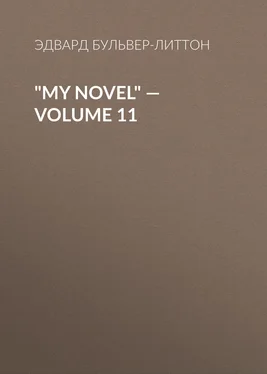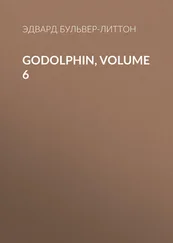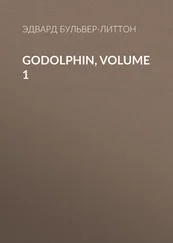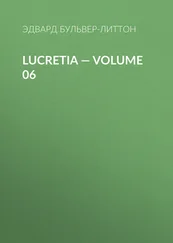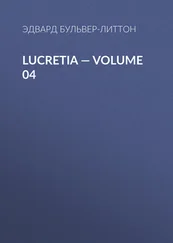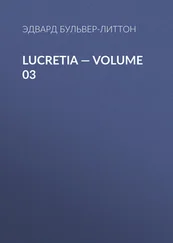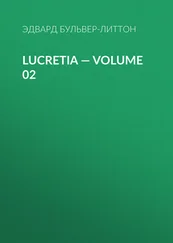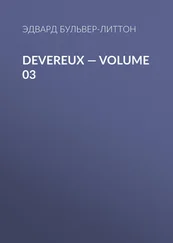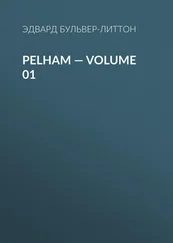Эдвард Бульвер-Литтон - My Novel — Volume 11
Здесь есть возможность читать онлайн «Эдвард Бульвер-Литтон - My Novel — Volume 11» — ознакомительный отрывок электронной книги совершенно бесплатно, а после прочтения отрывка купить полную версию. В некоторых случаях можно слушать аудио, скачать через торрент в формате fb2 и присутствует краткое содержание. Жанр: foreign_prose, literature_19, Европейская старинная литература, foreign_antique, на английском языке. Описание произведения, (предисловие) а так же отзывы посетителей доступны на портале библиотеки ЛибКат.
- Название:My Novel — Volume 11
- Автор:
- Жанр:
- Год:неизвестен
- ISBN:нет данных
- Рейтинг книги:3 / 5. Голосов: 1
-
Избранное:Добавить в избранное
- Отзывы:
-
Ваша оценка:
- 60
- 1
- 2
- 3
- 4
- 5
My Novel — Volume 11: краткое содержание, описание и аннотация
Предлагаем к чтению аннотацию, описание, краткое содержание или предисловие (зависит от того, что написал сам автор книги «My Novel — Volume 11»). Если вы не нашли необходимую информацию о книге — напишите в комментариях, мы постараемся отыскать её.
My Novel — Volume 11 — читать онлайн ознакомительный отрывок
Ниже представлен текст книги, разбитый по страницам. Система сохранения места последней прочитанной страницы, позволяет с удобством читать онлайн бесплатно книгу «My Novel — Volume 11», без необходимости каждый раз заново искать на чём Вы остановились. Поставьте закладку, и сможете в любой момент перейти на страницу, на которой закончили чтение.
Интервал:
Закладка:
"I am going in the country a few miles to see a patient," said the doctor; "so we shall have time for undisturbed consultation. I have so often wondered what had become of you. Not hearing from Prickett, I wrote to him, and received from his heir an answer as dry as a bone. Poor fellow, I found that he had neglected his globules and quitted the globe. Alas, 'pulvis et umbra sumus!' I could learn no tidings of you. Prickett's successor declared he knew nothing about you. I hoped the best; for I always fancied you were one who would fall on your legs,— bilious-nervous temperament; such are the men who succeed in their undertakings, especially if they take a spoonful of chamomilla whenever they are over-excited. So now for your history and the little girl's,— pretty little thing,—never saw a more susceptible constitution, nor one more suited to pulsatilla."
Leonard briefly related his own struggles and success, and informed the good doctor how they had at last discovered the nobleman in whom poor Captain Digby had confided, and whose care of the orphan had justified the confidence.
Dr. Morgan opened his eyes at hearing the name of Lord L'Estrange. "I remember him very well," said he, "when I practised murder as an allopathist at Lansmere. But to think that wild boy, so full of whim and life and spirit, should become staid enough for a guardian to that dear little child, with her timid eyes and pulsatilla sensibilities. Well, wonders never cease! And he has befriended you too, you say. Ah, he knew your family."
"So he says. Do you think, sir, that he ever knew—ever saw—my mother?"
"Eh! your mother?—Nora?" exclaimed the doctor, quickly; and, as if struck by some sudden thought, his brows met, and he remained silent and musing a few moments; then, observing Leonard's eyes fixed on him earnestly, he replied to the question,
"No doubt he saw her; she was brought up at Lady Lansmere's. Did he not tell you so?"
"No." A vague suspicion here darted through Leonard's mind, but as suddenly vanished. His father! Impossible. His father must have deliberately wronged the dead mother. And was Harley L'Estrange a man capable of such wrong? And had he been Harley's son, would not Harley have guessed it at once, and so guessing, have owned and claimed him? Besides, Lord L'Estrange looked so young,—old enough to be Leonard's father!—he could not entertain the idea. He roused himself and said, falteringly,
"You told me you did not know by what name I should call my father."
"And I told you the truth, to the best of my belief."
"By your honour, sir?"
"By my honour, I do not know it."
There was now a long silence. The carriage had long left London, and was on a high road somewhat lonelier, and more free from houses than most of those which form the entrances to the huge city. Leonard gazed wistfully from the window, and the objects that met his eyes gradually seemed to appeal to his memory. Yes! it was the road by which he had first approached the metropolis, hand in hand with Helen—and hope so busy at his poet's heart. He sighed deeply. He thought he would willingly have resigned all he had won—independence, fame, all—to feel again the clasp of that tender hand, again to be the sole protector of that gentle life.
The doctor's voice broke on his revery. "I am going to see a very interesting patient,—coats to his stomach quite worn out, sir,—man of great learning, with a very inflamed cerebellum. I can't do him much good, and he does me a great deal of harm."
"How harm?" asked Leonard, with an effort at some rejoinder.
"Hits me on the heart, and makes my eyes water; very pathetic case,— grand creature, who has thrown himself away. Found him given over by the allopathists, and in a high state of delirium tremens, restored him for a time, took a great liking to him,—could not help it,—swallowed a great many globules to harden myself against him, would not do, brought him over to England with the other patients, who all pay me well (except Captain Higginbotham). But this poor fellow pays me nothing,—costs me a great deal in time and turnpikes, and board and lodging. Thank Heaven, I'm a single man, and can afford it! My poy, I would let all the other patients go to the allopathists if I could but save this poor, big, penniless, princely fellow. But what can one do with a stomach that has not a rag of its coats left? Stop" (the doctor pulled the check-string). "This is the stile. I get out here and go across the fields."
That stile, those fields—with what distinctness Leonard remembered them. Ah, where was Helen? Could she ever, ever again be, his child-angel?
"I will go with you, if you permit," said he to the good doctor. "And while you pay your visit, I will saunter by a little brook that I think must run by your way."
"The Brent—you know that brook? Ah, you should hear my poor patient talk of it, and of the hours he has spent angling in it,—you would not know whether to laugh or cry. The first day he was brought down to the place, he wanted to go out and try once more, he said, for his old deluding demon,—a one-eyed perch."
"Heavens!" exclaimed Leonard, "are you speaking of John Burley?"
"To be sure, that is his name,—John Burley."
"Oh, has it come to this? Cure him, save him, if it be in human power. For the last two years I have sought his trace everywhere, and in vain, the moment I had money of my own, a home of my own. Poor, erring, glorious Burley! Take me to him. Did you say there was no hope?"
"I did not say that," replied the doctor. "But art can only assist Nature; and though Nature is ever at work to repair the injuries we do to her, yet, when the coats of a stomach are all gone, she gets puzzled, and so do I. You must tell me another time how you came to know Burley, for here we are at the house, and I see him at the window looking out for me."
The doctor opened the garden gate of the quiet cottage to which poor Burley had fled from the pure presence of Leonard's child-angel. And with heavy step, and heavy heart, Leonard mournfully followed, to behold the wrecks of him whose wit had glorified orgy, and "set the table in a roar." Alas, poor Yorick!
CHAPTER V
Audley Egerton stands on his hearth alone. During the short interval that has elapsed since we last saw him, events had occurred memorable in English history, wherewith we have nought to do in a narrative studiously avoiding all party politics even when treating of politicians. The new ministers had stated the general programme of their policy, and introduced one measure in especial that had lifted them at once to the dizzy height of popular power. But it became clear that this measure could not be carried without a fresh appeal to the people. A dissolution of parliament, as Audley's sagacious experience had foreseen, was inevitable. And Audley Egerton had no chance of return for his own seat, for the great commercial city identified with his name. Oh, sad, but not rare, instance of the mutabilities of that same popular favour now enjoyed by his successors! The great commoner, the weighty speaker, the expert man of business, the statesman who had seemed a type of the practical steady sense for which our middle class is renowned,—he who, not three years since, might have had his honoured choice of the largest popular constituencies in the kingdom,—he, Audley Egerton, knew not one single town (free from the influences of private property or interest) in which the obscurest candidate, who bawled out for the new liberal measure, would not have beaten him hollow. Where one popular hustings, on which that grave sonorous voice, that had stilled so often the roar of faction, would not be drowned amidst the hoots of the scornful mob?
True, what were called the close boroughs still existed; true, many a chief of his party would have been too proud of the honour of claiming Andley Egerton for his nominee. But the ex-minister's haughty soul shrunk from this contrast to his past position. And to fight against the popular measure, as member of one of the seats most denounced by the people,—he felt it was a post in the grand army of parties below his dignity to occupy, and foreign to his peculiar mind, which required the sense of consequence and station. And if, in a few months, those seats were swept away—were annihilated from the rolls of parliament—where was he? Moreover, Egerton, emancipated from the trammels that had bound his will while his party was in office, desired, in the turn of events, to be nominee of no man,—desired to stand at least freely and singly on the ground of his own services, be guided by his own penetration; no law for action but his strong sense and his stout English heart. Therefore he had declined all offers from those who could still bestow seats in parliament. Seats that he could purchase with hard gold were yet open to him. And the L5,000 he had borrowed from Levy were yet untouched.
Читать дальшеИнтервал:
Закладка:
Похожие книги на «My Novel — Volume 11»
Представляем Вашему вниманию похожие книги на «My Novel — Volume 11» списком для выбора. Мы отобрали схожую по названию и смыслу литературу в надежде предоставить читателям больше вариантов отыскать новые, интересные, ещё непрочитанные произведения.
Обсуждение, отзывы о книге «My Novel — Volume 11» и просто собственные мнения читателей. Оставьте ваши комментарии, напишите, что Вы думаете о произведении, его смысле или главных героях. Укажите что конкретно понравилось, а что нет, и почему Вы так считаете.
